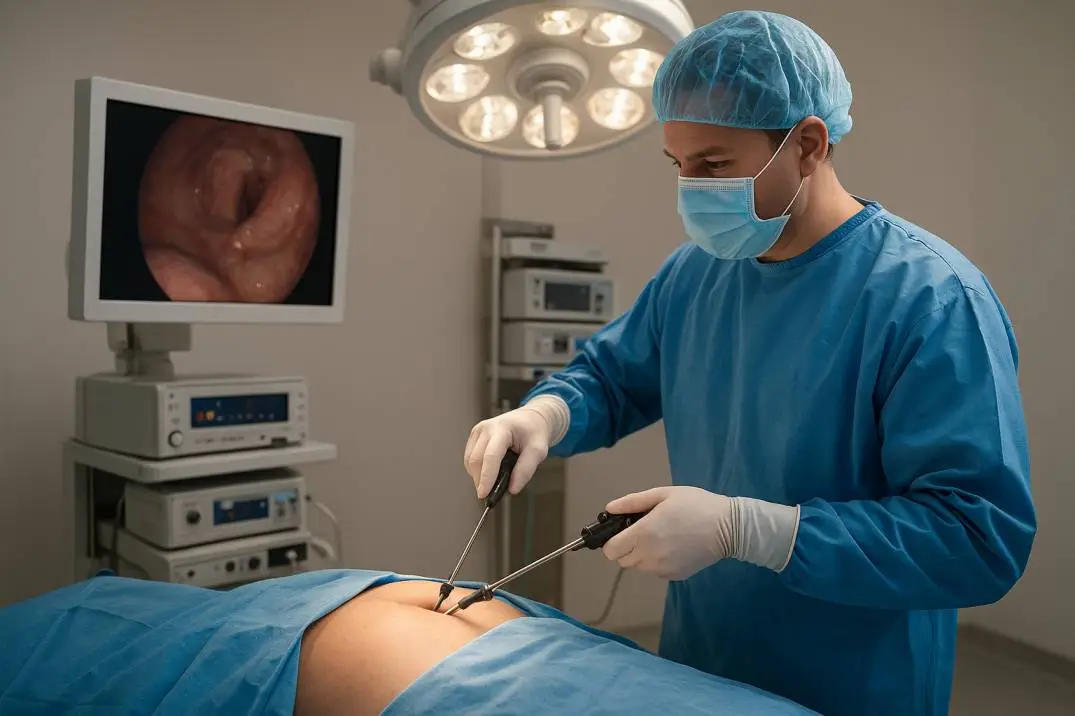How Long Does Hiatal Hernia Surgery Take?
Surgery for a hiatal hernia, though a common procedure, is something that requires careful consideration and preparation.
Understanding what to expect, especially in terms of time, can help ease concerns and make the process smoother.
This blog explains the duration of various hiatal hernia surgeries and the many factors that could influence the timeline, from preparation to recovery.

What Is a Hiatal Hernia?
A hiatal hernia occurs when a part of the stomach pushes through an opening in the diaphragm, the muscle that separates your chest from your abdominal cavity.
This condition is most common in people over the age of 50 and can range from mild to severe.
Symptoms often depend on the size and type of hernia but typically include:
- Heartburn or acid reflux
- Chest discomfort
- Difficulty swallowing
- Regurgitation of food or liquids
- Shortness of breath, in severe cases
When symptoms persist or become severe, hiatus hernia surgery might be recommended to correct the issue.
Surgical Options for Hiatal Hernia
Various techniques are available to repair a hiatal hernia, and the type of surgery often determines the time it takes. Here’s an overview of the three most common surgical methods:
1. Open Surgery
Open surgery is the traditional approach and involves creating a long incision in the chest or abdomen to repair the hernia. While effective, it is more invasive than other methods.
- Duration: Typically takes 2 to 4 hours.
- When It’s Used: Often recommended for large or complex hernias or when other surgeries are not suitable.
2. Laparoscopic Surgery
This minimally invasive technique uses several small incisions. A thin tube with a camera and surgical instruments is inserted to repair the hernia.
- Duration: Usually takes 1 to 2 hours.
- Advantages: Shorter recovery time, less pain, and smaller scars compared to open surgery.
3. Robotic-Assisted Surgery
This advanced technique is similar to laparoscopic surgery but involves robotic arms controlled by a surgeon for added precision.
- Duration: Generally lasts around 2 to 3 hours.
- Who Benefits: Suitable for patients who require high precision, such as those with complicated conditions.
Factors That Influence Surgery Time
Several factors can affect how long the procedure takes, including:
1.Hernia Complexity
Larger or strangulated hernias, where part of the stomach has been cut off from its blood supply, often require longer surgeries to carefully repair the damage.
2.Patient Health
Patients with underlying health conditions, such as obesity or cardiovascular issues, may face challenges that extend the surgery time.
3.Surgeon’s Experience and Equipment
Highly experienced hernia surgeons, or those using advanced equipment like robotic systems, may complete procedures faster while maintaining precision.
4.Unexpected Complications
Some surgeries may run longer if complications arise during the procedure, such as excessive bleeding or unforeseen anatomical issues.
Pre-Surgery Preparation and Its Impact on Timing
Preparation for hiatal hernia surgery can influence the overall process. Most patients will undergo the following preparatory steps:
- Medical Evaluation
A thorough evaluation, including imaging tests or endoscopy, helps the surgical team plan the procedure, ensuring efficiency.
- Lifestyle Changes
Recommendations to stop smoking, lose weight, or adjust medications can reduce risks during the operation, potentially shortening recovery time.
- Fasting Before Surgery
Patients are typically required to fast for several hours pre-surgery, which ensures the stomach is empty and reduces complications.
By adhering to preparation guidelines, patients can reduce the risk of delays or complications during surgery.
Post-Surgery Recovery Time
Understanding recovery time is an essential part of planning for surgery. While the time spent in the operating room is finite, the healing process requires patience.
1.Initial Hospital Stay
- Open Surgery: Hospital stays typically range from 4 to 7 days.
- Laparoscopic or Robotic Surgery: Hospitalisation is shorter, often 1 to 3 days.
2.Full Recovery
- Open Surgery: Recovery may take 6 to 8 weeks, depending on the individual.
- Laparoscopic/Robotic Surgery: Most patients resume daily activities within 2 to 4 weeks.
3.Post-Operative Expectations
Patients may experience a sore throat, abdominal discomfort, or shoulder pain (from gas used during laparoscopic surgery). Following post-op care instructions, such as eating a soft diet and avoiding heavy lifting, is essential for a smooth recovery.
Summary
The duration of hiatal hernia surgery varies by method, with laparoscopic procedures generally being the shortest and open surgeries taking the longest.
Key factors, such as the type and complexity of the hernia, the patient’s health, and preparation efforts, influence the timeline.
While the surgery itself may only take a few hours, pre- and post-surgical considerations can extend the overall recovery process.
By consulting with a hernia specialist and understanding what to expect, patients can better prepare for this life-improving procedure.

Dr. Aditya Kulkarni
MS, DNB, FRCS, MCh (Surgical Gastroenterology & GI Oncology)
Dr. Aditya Kulkarni is a Consultant of Laparoscopic and Robotic Gastrointestinal, Hepato-biliary-pancreatic, and Cancer Surgeon at the Renowned Oasis Surgery Clinic Pune.
